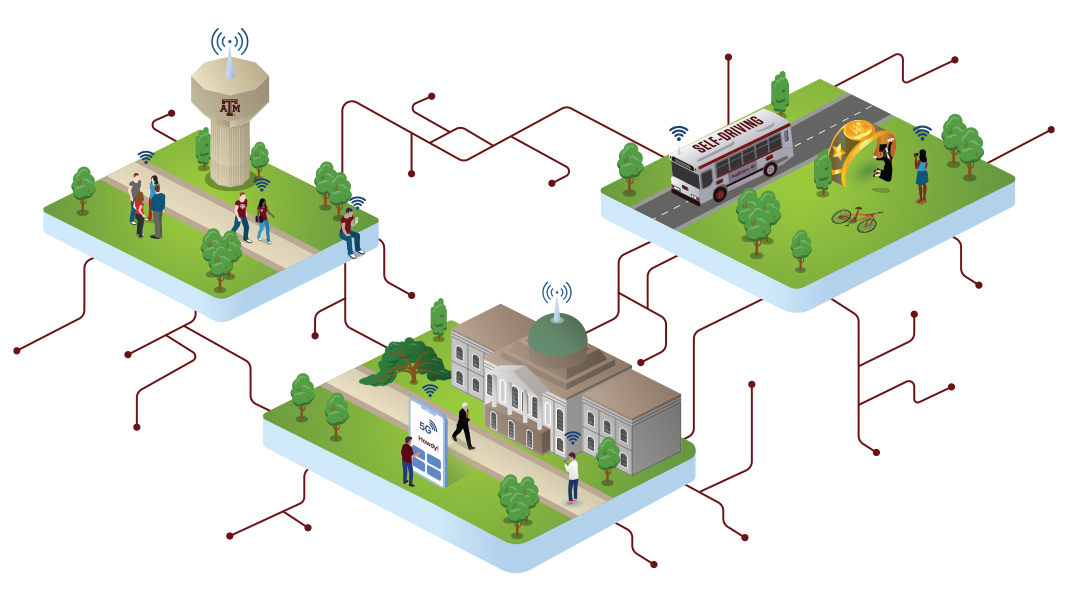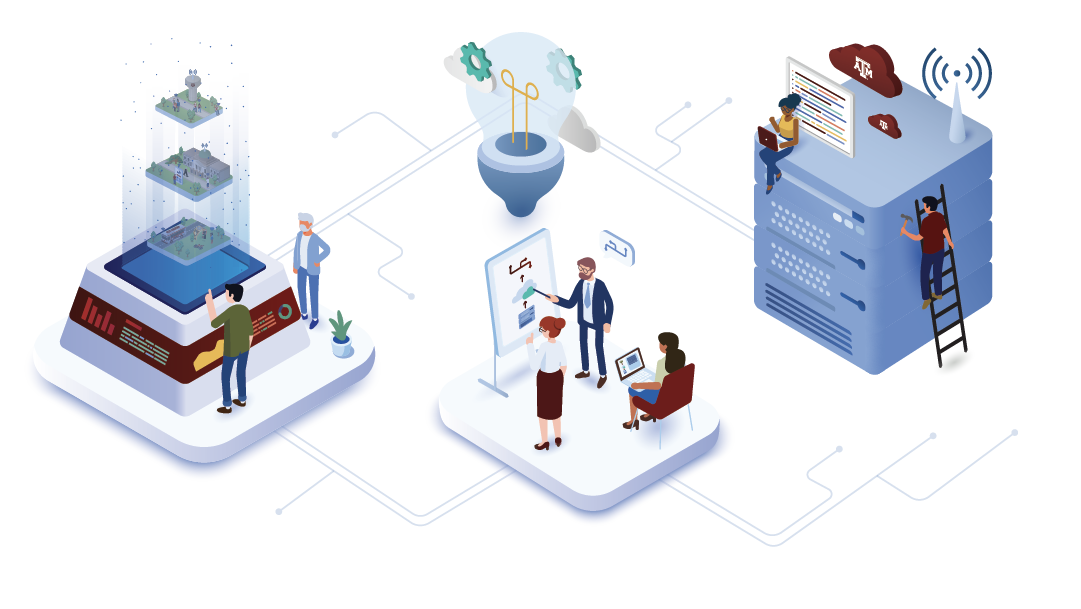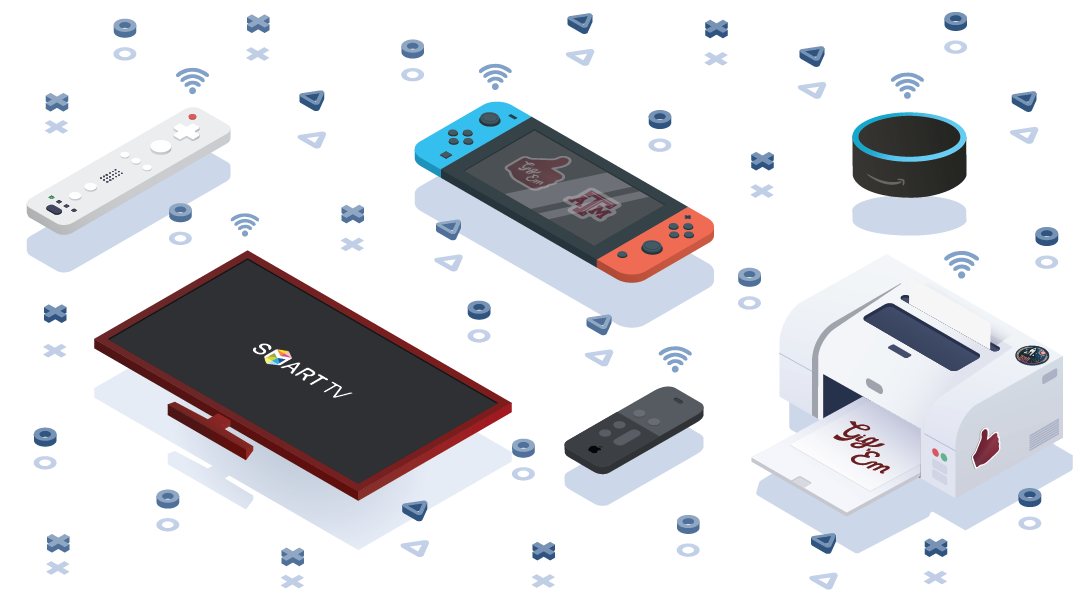Campus Network
Backbone of Success
It’s indisputable — technology is essential to teaching, learning and research. Texas A&M’s data network is the backbone of our campus IT infrastructure — connecting students and faculty to valuable information, tools and collaboration opportunities.

Texas A&M’s network has grown organically for decades, and while the network initially met campus needs, it’s time to design a new network to support an organization the size and complexity of Texas A&M. To meet the needs of the university well into the future, the Division of Information Technology is designing the Next-Generation Aggie Network.
Building YOUR Network
The needs of students, faculty researchers and campus stakeholders must drive the design of the new network. In late 2021, the Division of IT launched a survey and hosted a series of listening sessions to gather requirements for the new network. The message from campus was clear. The new network must address capacity, speed, manageability, modularity, agility and performance issues.
The network’s robust backbone will power a pervasive and high-capacity wireless network to increase wireless coverage for mobile devices inside classrooms and across campus. 5G and IoT technologies should be enabled to support the explosion of smart devices and fuel cutting-edge research.
The new network will deliver more reliable and secure methods for transmitting data, which are essential for faculty research. A security model suitable for the collaboration needs of a Tier-1 research institution must be included, while also providing strong protection for projects with strict compliance requirements.
Network of the Future
The Next-Generation Aggie Network will be faster, stronger and more secure. Coupled with long-term, sustainable funding and service delivery strategies — the new network will provide a modern, resilient and secure research and education network to better meet the future demands of Texas A&M educators, researchers and students. The Next Generation Aggie Network is Texas A&M’s network — the backbone of our success.
Achievements
Stronger, Faster Network
Campus received 475 additional access points over the year and the network from campus data centers to the campus border was increased from 40GB to 100GB. Fiber was upgraded from older multi-mode to new single-mode fiber in 36 buildings and fiber was added to six new locations.
VPN Improvements
VPN bandwidth and geographical redundancy are also being improved. Tunnels are being split and moved to Cisco Firepower with 10 GB connections. Usability of the service has increased with the extension of the VPN login time to 60 seconds for users accessing the service.

Plans Underway for Next Generation Aggie Network
Designs for the Next Generation Aggie Network are being developed to better meet future demands of Texas A&M educators, researchers and students. Open sessions were held to get feedback from campus members, presentations were made to university stakeholder groups and a user survey was conducted. Campus feedback is being consolidated and an Executive Summary will be presented to the Board of Regents in early 2022.
Maximizing Value
Embracing the Internet of Things
Current infrastructure is being improved to increase speeds, reliability and value for campus. In 2021, the division launched a pilot program for an Internet of Things (IoT) network. The network allows campus members to connect smart devices that will not connect to TAMU_WiFi and links each device to the user’s account, ensuring network safety.

Camera Management Streamlined
The division will save approximately $20,000 per year with the move of over 260 cameras to the Genetec system of Transportation Services. Division staff responsible for the cameras also split time with card access management. Streamlining will allow those staff members to focus on card access. Transportation now manages over 1,400 cameras across campus.
Frontier Master Service Agreement Saves Money
A new three-year master service agreement with Frontier will save approximately $144,000 annually. The agreement should be approved in early 2022.
Partner Success
Engineering Smarter Classrooms with IoT
Students in the College of Engineering’s Department of Engineering Technology and Industrial Distribution used the pilot IoT network to raise capstone projects to a new level. By harnessing the functionality of IoT, students can expand their knowledge and usage of technologies such as autonomous vehicles.